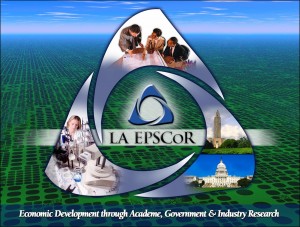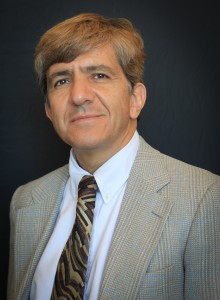The Louisiana Experimental Program to Stimulate Competitive Research (LA EPSCoR), housed within the Board of Regents, has been awarded three major National Science Foundation (NSF) EPSCoR Research Infrastructure Improvement (RII) grants: a Track 1 award of $20 million over five years; a Track 2 of $2.16 million over three years; and a two-year Cyber Connectivity (C2) of $ 1.17 over two years. The Track 1 grant is the largest ever awarded to Louisiana by NSF. These awards represent a major resource for researchers, students, universities, and the State, helping push the State forward in cutting-edge science and technology while transforming education related to workforce needs of the 21st century.

All three of these grants leverage Louisiana’s previous investments in research, including the regional Louisiana Optical Network Initiative (LONI), as well as research programs at Louisiana State University, Grambling State University, Louisiana Tech University, University of New Orleans, Southern University, Tulane University, the University of Louisiana at Lafayette, and Xavier University of Louisiana. The Track 2 award, a collaboration between Louisiana, Mississippi and Alabama EPSCoR programs, reaches beyond the State’s borders to share vital resources and scientific expertise.
These awards also represent a state investment, through the Board of Regents Support Fund, of $11.2 million, pledged as a match to NSF’s Track 1 and Track 2 funding of $22.16 million. The Support Fund, which has provided matching funds since the inception of the LA EPSCoR program, is a crucial partner in securing federal funding, providing important resources to undergird the work and tangibly demonstrating the State’s commitment to the projects.
Each of the three projects addresses cutting-edge research areas and questions of vital importance to Louisiana:

Through the major Track 1 award, Louisiana plans to transform materials science research of modern materials that drive today’s technologies by creating the Louisiana Alliance for Simulation-Guided Materials Applications (LA-SiGMA). Alliance researchers will study the complex behavior of materials related to everything from biomolecular systems and drug delivery to energy storage. The project will not only have broad scientific significance, it will also dramatically impact education and workforce development in Louisiana. “The formation of LA-SiGMA through the support of this NSF EPSCoR grant will enable Louisiana to position itself to transform research and education in computational materials science, a relatively young field,” says Dr. Khonsari. “The Alliance, which will include more than 100 faculty, postdoctoral researchers and students, will be sustained by collaborations involving shared students and postdoctoral researchers, interdisciplinary programs in computational materials, and shared courses taught via HD video.”
The Track 2 award establishes the Northern Gulf Coastal Hazards Collaboratory (NG-CHC) to address a problem of national importance, particularly following the Deepwater Horizon Disaster: response to and management of coastal hazards. This tri-state collaboration will develop a framework and strategies for organizing the resources in the region in a manner that transcends boundaries among state lines. The key to success is close integration among coastal scientists, coastal engineers, and social scientists, with a comprehensive commitment to producing results that advance science and provide a sound basis for designing more sustainable landscapes. This project is well positioned to draw upon the unique research environment that has resulted from the oil spill and its aftermath.
While the Track 1 and Track 2 awards are broad in scope, the C2 is highly focused, directly addressing a major need to extend LONI’s high-bandwidth optical network into Xavier University of Louisiana, located in New Orleans. Xavier is nationally recognized for its science, technology, engineering, and mathematics (STEM) curriculum. This major initiative will help facilitate research relationships between Xavier faculty and students and the State’s leading computational and experimental scientists as well as partnerships with major institutions nationally. In addition, this extension of LONI will benefit Xavier’s students, creating a pipeline for traditionally underrepresented undergraduates who are well-trained and qualified for life-long careers in computational fields.
